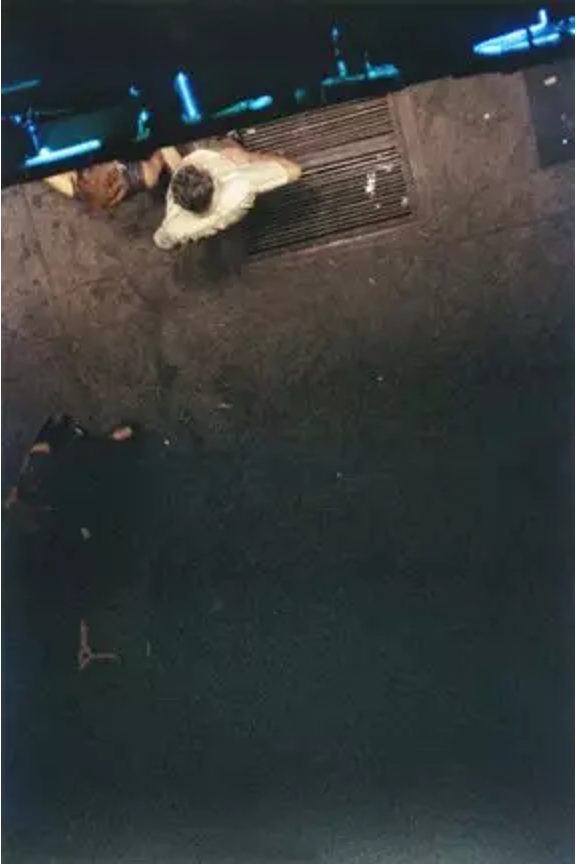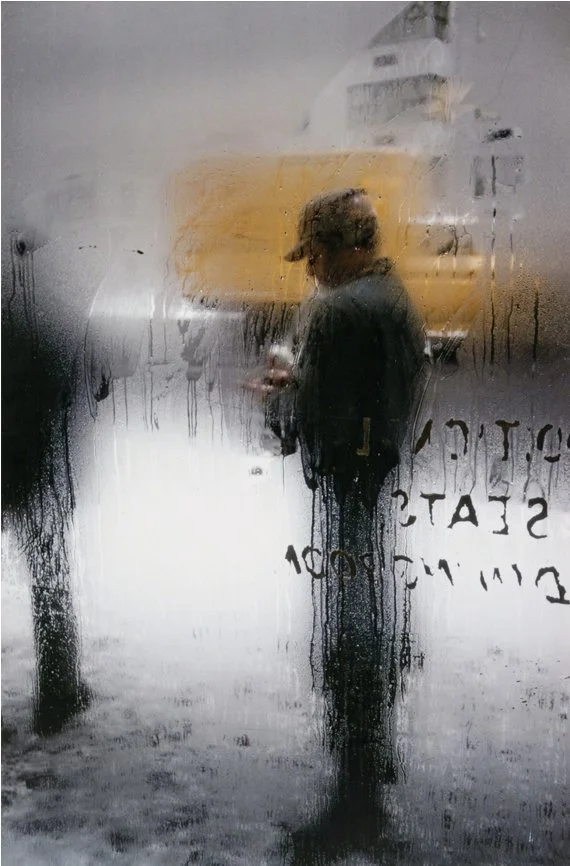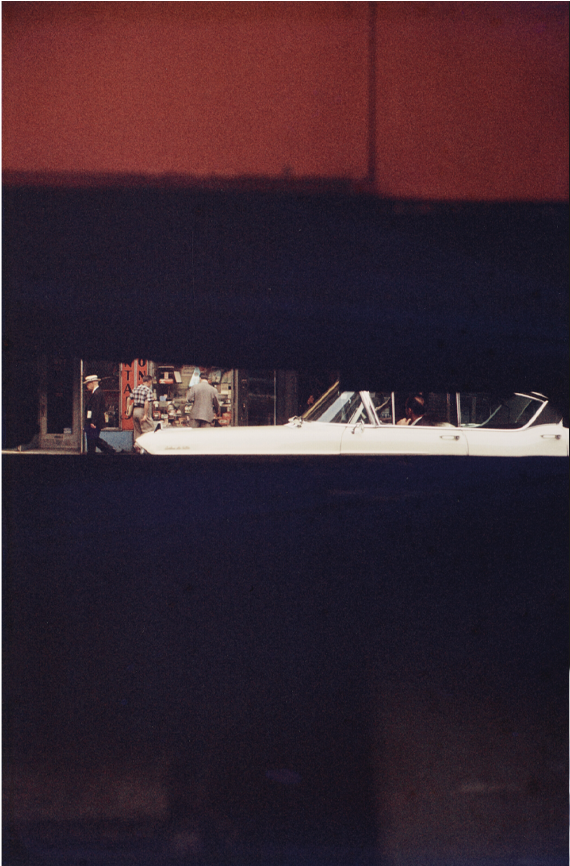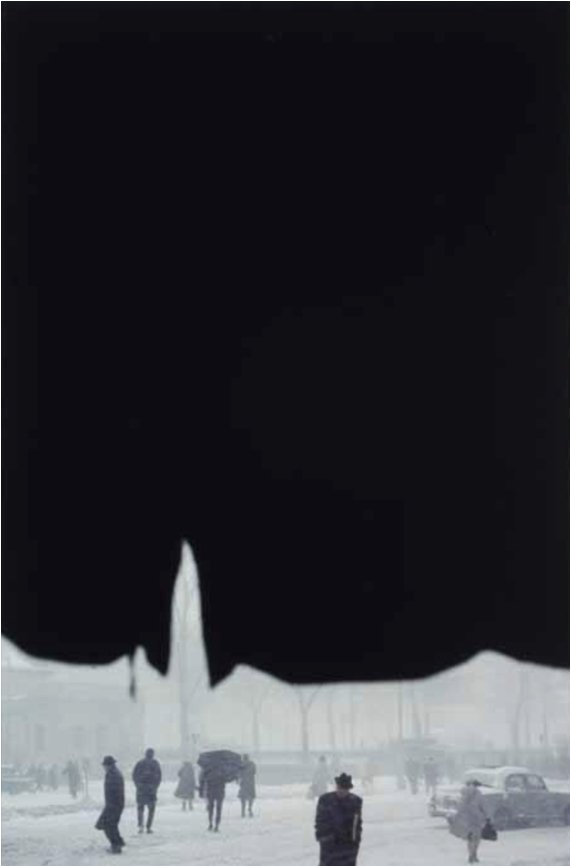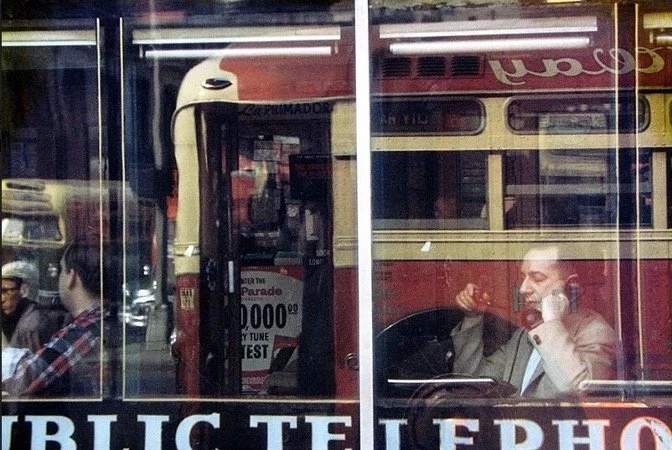Saul Leiter at the MK Gallery
An Unfinished World
Saul Leiter exhibition at MK Gallery on until 2nd June 2024
‘A New York based pioneer who for much of his life worked in relative obscurity until he was effectively rediscovered at the start of this century.’
How refreshing to see such high-quality artworks outside of London at the MK Gallery which is starting to rack up several thought-provoking exhibitions by established and groundbreaking artists. In this case we see the art and photography of Saul Leiter, (1923-2013).
To be honest most of his paintings here I can take or leave, though there are some exquisite examples, but he is best known for his photographic work that documented the streets of the city from the mid 1940’s onwards in such a unique way. Here it is fascinating though to see the interplay between the concerns of both mediums.
‘Clearly the images are of a bygone and nostalgic lost world before smart phones, computers and air con.’
‘Auto’ 1960’s
There is an immediacy in the clarity of the film, the richness of colour and the abstracted snatched and contemporary nature of the compositions that transport you straight to these captured moments in time. The figures with their faces slightly obscured seem so real that you feel you can touch them while they are lost in thought and action. He seems to focus in and isolate them, so they seem almost heroic even as they carry out their mundane actions. Strangely given the urban nature, they exude tranquility.
‘Looking Down’ 1953
‘T’ 1950
‘What takes these images to such an exalted and inspirational level though?’
Is it the diversity of viewpoints such as the frequent use of a bird's eye perspective as Leiter photographed from his apartment looking down from above to create a god like perspective? This develops a voyeuristic nature for the viewer, obscured scenes, peeping through blurred expanses of colour canopies, windows and car doors to give little microcosms of human existence in the anonymity of the city. This is intensified by the shallow depth of field, blurred moments that emphasize time passing in their stillness.
‘Reflections and distortions are a recurrent theme so that you are never clear quite what you are looking at.’
‘Snow’ 1970
‘Untitled (C-008930)’
Are we outside looking in, or inside looking out. Some of my favourite images are seen through misted windows thick with condensation (do we have buses or cafes with misted windows anymore?) waiting to be smeared to clear our vision. Through these the figures dissipate into strands of watery dribbles emphasizing a seeming commentary of the human condition.
‘I do like photographs where sometimes everything’s lost and, in some corner, something’s going on and you’re not quite sure what it is’
Saul Leiter
‘Through Boards’ 1957
‘Driver’ 1950’s
It’s the compositions that excite me the most. Leiter was a contemporary of the Abstract Expressionists and indeed was friends with many of them, though he shunned the limelight that these masculine titans demanded. He was even offered and refused an exhibition with the leading gallerist, Betty Parsons who championed their work. The influence is unmistakable though. Large colourfields dominate but through these are snippets of detail of the streets and silhouetted figures that balance and give meaning to the abstracted shapes and forms.
‘The incisive moment: Footprints’, (c1950)
‘There were many other wide-ranging influences however from the intimate and exaggerated viewpoints of the Nabis, Bonnard & Vuillard and the cut off perspectives of Sumi-e Ink block Japanese prints.’
In interview Leiter almost revels in his relative anonymity. “I wasn’t ambitious or driven,” he said “I don’t admire success the way some people do. I was fortunate to fulfil my ambition to be unsuccessful.” The implication being that this allowed this quiet genius to stay within the shadows pointing his camera to celebrate the beauty of the mundane.
‘Canopy’, (1958).
It’s fascinating how Leiter creates stories. There’s the stories of the subjects in the images, but also the narrative of the artist as a voyeur. We as viewers are further thrown into the mix also so there is established an understated relationship between the figure, the artist and the viewer.
‘A man walking down the street with a cart. He’s picking up clothes. He’s struggling to earn a living. I knew a man with a cart who became a millionaire, a friend of my father’s. He came from Hungary. He got out during the Hitler period, came to America, walking around with a cart. He ended being a very rich man. Carts are the gateway to a dreamworld.’
Saul Leiter
‘Phone Call’, (1957).




